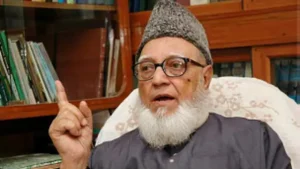
Biden’s administration has also emphasized engagement with the United Nations and international coalitions to address global challenges, such as the threat of climate change and the rise of authoritarian regimes.
4. China and Russia:
Biden’s war policy also includes a focus on the strategic competition between the U.S., China, and Russia.
China: Biden views China as a primary global competitor and has emphasized a strong military posture in the Indo-Pacific region to counter Chinese influence. However, Biden also advocates for diplomatic and economic measures to manage competition with China, prioritizing competition over direct military confrontation.
Russia: Biden has been a vocal critic of Russian aggression, particularly with regard to the annexation of Crimea and interference in U.S. elections. His administration has provided military aid to Ukraine and implemented sanctions against Russia but has also sought diplomatic avenues for managing tensions, including arms control agreements like the New START Treaty.
5. Defense Budget and Military Modernization:
Biden’s war policy includes a focus on modernizing the U.S. military to meet current and future threats. His administration has advocated for maintaining a strong defense budget while ensuring resources are allocated to newer technologies like cybersecurity, artificial intelligence, and space defense. Biden has emphasized the need to ensure that the military is prepared for new types of warfare, such as cyberattacks and hybrid threats from adversaries like China and Russia.
6. Focus on Domestic Security:
Biden’s war policy has also been shaped by a recognition of the importance of domestic security and countering extremist threats at home. He has focused on addressing domestic terrorism, particularly in the aftermath of the January 6th Capitol riot and the rise of white supremacist groups.
Key Elements of Biden’s War Policy:
Endless wars: Biden is committed to ending “endless wars,” particularly in the Middle East, and focusing on diplomacy and partnerships rather than prolonged military interventions.
Counterterrorism: Biden supports continued counterterrorism efforts, particularly through intelligence gathering, drone strikes, and special operations forces.
Bipartisan military alliances: Strengthening NATO and U.S. alliances around the world to ensure global security and resist authoritarian influence.
Military modernization: Investing in advanced technologies and adapting to new threats like cyberattacks and space warfare.
China and Russia competition: Focusing on strategic competition with global powers like China and Russia while avoiding direct military confrontation.
Overall, Biden’s war policy reflects a pragmatic, multilateral approach, emphasizing diplomacy, selective military engagement, and a focus on modern security challenges, including terrorism, cyber threats, and great power competition.
Joe Biden’s Legacy:
Joe Biden’s legacy is still unfolding as he serves as the 46th President of the United States. However, his long career in public service, spanning over five decades, has already left a profound mark on American politics, foreign policy, and domestic affairs. Biden’s legacy will likely be shaped by several key accomplishments, challenges, and the lasting impact of his leadership.
1. Advocacy for Working-Class Americans:
Biden has long been an advocate for the working class, drawing from his own humble beginnings in Scranton, Pennsylvania. Throughout his career, he has consistently supported policies aimed at improving the lives of everyday Americans, such as expanding access to healthcare, increasing the minimum wage, and supporting labor unions. As President, his American Rescue Plan (2021) provided direct relief to millions of Americans during the COVID-19 pandemic, marking one of his first major legislative achievements.
2. COVID-19 Pandemic Response:
One of the defining challenges of Biden’s presidency has been his handling of the COVID-19 pandemic. Biden’s administration prioritized vaccine distribution, securing hundreds of millions of doses and working to get vaccines into the arms of Americans. He also passed the American Rescue Plan, which provided direct financial support, extended unemployment benefits, and funds to support state and local governments during the economic downturn caused by the pandemic.






